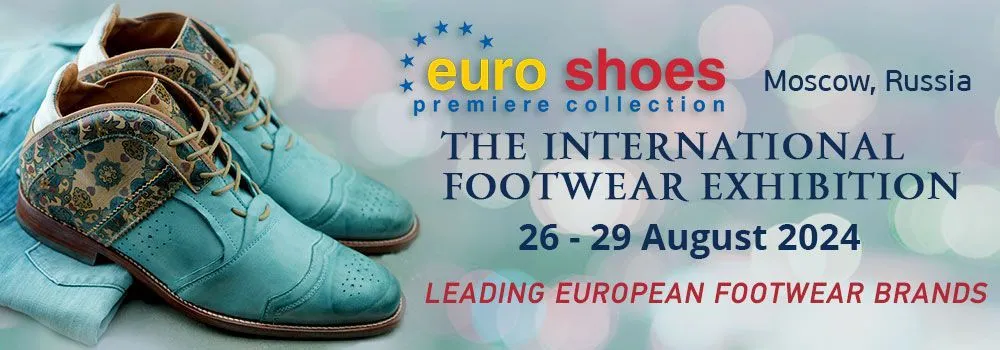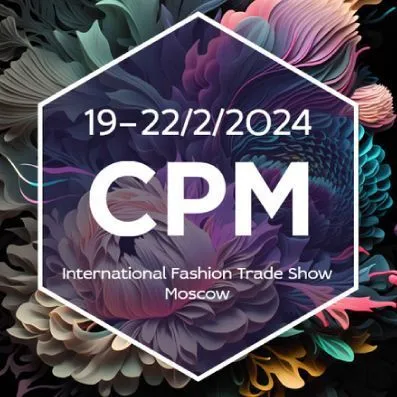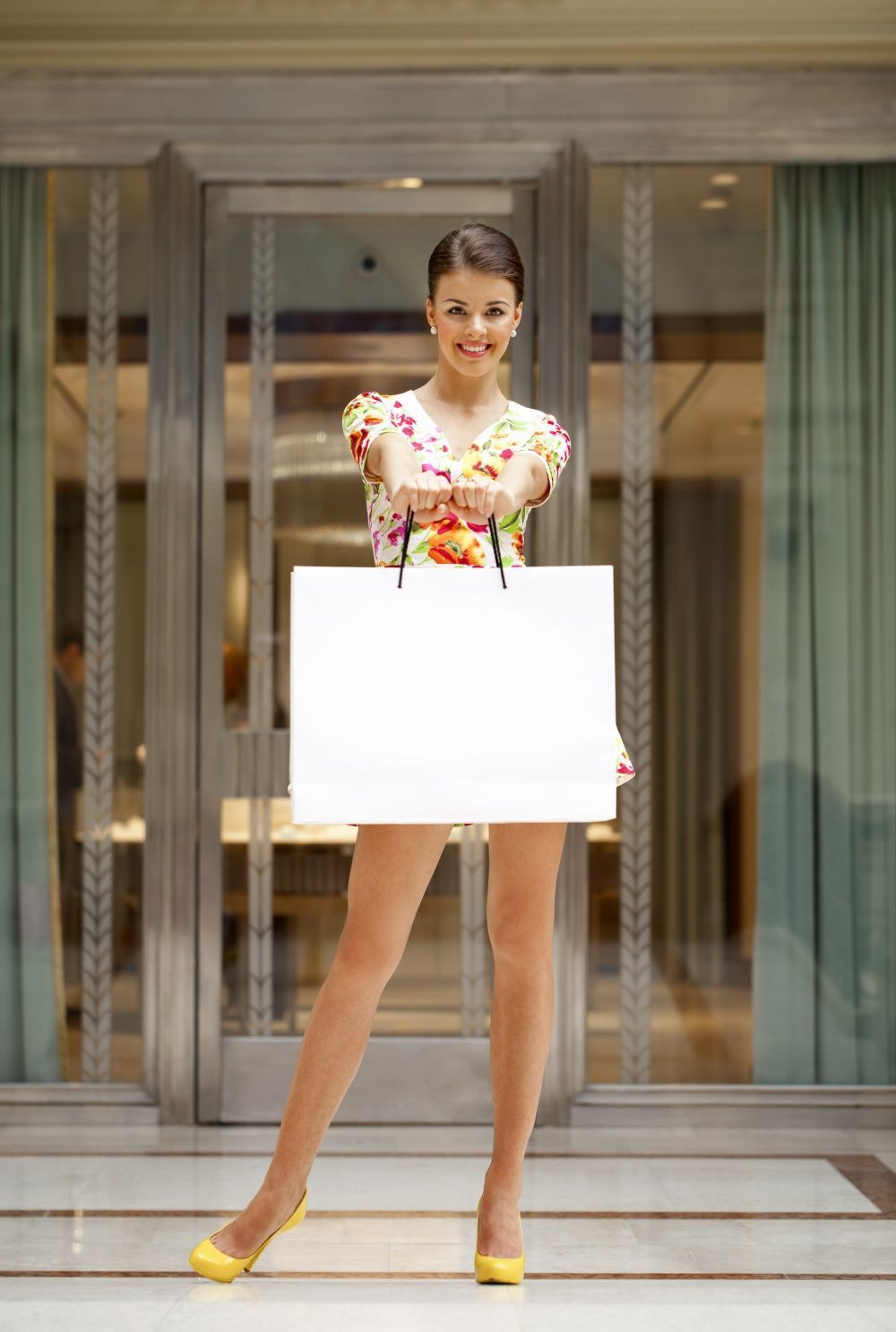
What brand? Research on the preferences of Russian consumers

Do you know the Russian consumer well? Sure?! The international company Landor has conducted a global survey of the preferences of our compatriots and the results were quite amazing. About the attitude of Russians to brands - myths and realities, as well as about which strategy to promote goods to choose in the conditions of the anti-crisis syndrome among the population - in the material of Shoes Report.
Matthew Kissan, director of strategic development of the Moscow office of the international company Landor Associates, in whose client portfolio there are more than 100 well-known brands.
Brandbuilding 2014 - the most significant event in the capital dedicated to the creation of
and brand promotion. This year experts from leading world agencies shared their brilliant practice.
From a business point of view, a brand is nothing more than a de facto monopoly. Under the current conditions, "brand monopoly" can be ensured solely through the implementation of a serious strategy and deep product promotion. As you know, the best plan is ... having a plan itself. To believe that a customer who has evaluated the quality of a product will remain loyal to the brand without any efforts on the part of the manufacturer is at least naive, at most stupid. The modern buyer is spoiled for choice: in order to sell him a product, it is not enough to rely only on the quality of the product; it is important to tell about its uniqueness.
The current state of consumers can be defined as a "post-crisis neurosis": people cannot truly believe in the future and refuse to appreciate the present. But this also means that real consumer preferences can radically change at the slightest change in the situation. The main reason for this “volatility” is the history of Russia itself. The older generations in the country are generally pessimistic and not at all because of their age. For example, in Western states, it is the elderly who are more optimistic than their young compatriots, who find it difficult to find a job and do not believe that the state will be able to provide them with a full package of services that their parents receive, which allows them to think more about consumption.
In Russia, the situation is different: observers have long noticed that young people in the country are much more positive. This is the generation of Russian citizens who were born in the second half of the 80s (and later), the so-called "thousand people". The independent consumer scale of this group was actively formed already in the 2000s (the usual milestone for such a scale is the age of 15 years). The number of this cohort exceeds 45 million. In fact, this is the only generation in the history of modern Russia whose consumer sentiments and expectations were formed on the rise, not on the decline. The main characteristic of all optimists is a high level of trust in brands. And not only because it will allow you to stand out favorably among the environment. Behind the trust in the brand of new generations is the trust in the usual price-quality ratio, in the authenticity of the brand itself and, which is also important, in saving time on purchases, including through online orders. Thus, brand trust becomes a rational consumer expectation.
Bears, Caviar and Rolex
“When we arrived in Russia to open a representative office of the company, we had a clear image of the Russian consumer in our head - a Prada bag, beluga caviar for breakfast and French champagne for lunch,” comments Matthew Kissant. - The reality turned out to be completely different. The stereotype of a Russian as an unsmiling person with a Rolex on his hand, formed in the West in the dashing 90s, is long gone. Today, the Russian consumer clearly correlates the concepts of price and quality and appreciates the origin and philosophy of the brand. " Therefore, before starting strategic planning for the promotion of international brands in the Russian market, Landor conducted a global study: both the results of its own survey of more than 2000 respondents throughout the country and the results of Rospotrebnadzor and Rosstat collected by them over the past year were used.
Country of contrasts
“Russia remains - a country of contrasts and contradictions. In the 20 years since the fall of the Soviet Union, the Russian consumer has come of age. He is no longer puppy about any new product from the West, he is becoming more and more knowledgeable in matters of quality and clearly aware of what he buys and what he gets in return. Russia has 143 million active consumers, and for the first time in the last 000 years, this figure is growing. Moreover, Russians are getting richer and willing to spend more money on consumer goods, ”continues Matthew Kissan.
Retail is the driving force behind the country's economy and is three times larger than the raw materials sector in terms of volume. According to Rosstat, Russia is already among the top three European countries with the largest consumption and is number one as of 2013, in categories such as mobile communications, dairy products, clothing and footwear.
According to company analysts, the most favorable opportunities for building a brand in Russia are now. But it’s important not just to transfer Western practices to local realities, but to look for new opportunities to promote the product, as Russian consumers have a unique set of needs.
1. The Russians prefer to buy Russian brands, but domestic companies are not able to provide them with goods of appropriate quality.
There is a powerful “food nationalism” in the world of Russian retail. Customers usually prefer to buy a Russian product if they have a choice. Almost half of the respondents believe that Russian brands understand their needs better, and every third respondent said that Western brands are not suitable for Russia at all. Consumers prefer domestic brands in more than half of the trade sectors, especially food (milk, groceries, vodka products), telecommunications, and banking services. Nevertheless, international brands continue to outperform Russian ones in all key metrics that were identified in the study (quality, value, uniqueness, etc.). So far, when choosing clothes and shoes, Russians are still guided by a Western manufacturer, but one should not deny the fact that interest in Russian designers is growing at an accelerated pace every year. Taking advantage of this interest for commercial purposes, shoe companies today often attract Russian designers to cooperation (read the article about shoe collaborations on page XX).
What to do. Russian brands must invest heavily in building brand integrity, focusing not only on creating a quality product but also on their own style. Meanwhile, Western brands must carefully consider how they can benefit from their origins and how they can “Russify” themselves.
2. Russian service is improving, but still behind the level of Western Europe and the USA
Russian service has always been the subject of ridicule, and both the residents of our vast homeland and rare tourists made fun of it. But the situation is changing. Analysts at the New York Times noted that "the new generation of service personnel in Russia - stewardesses, salespeople and waitresses - are more customer-oriented and polite." “Our research has shown that more than half of Russians (54%) believe that the quality of service in the country is growing, but still does not meet high international standards.
What to do: Without exception, all brands operating in the Russian market should take into account this need for quality service. By offering the client a high level of services, you can easily entice a customer who is not spoiled by attention to his side. Invest in efforts to improve the quality of service and staff training to meet changing customer requirements.
3. Brands do not yet dominate the price
Almost half of Russians are ready to pay more for quality, but the price in their minds remains the main motivator to buy. Nevertheless, according to Landor polls, our compatriots dislike the words “cheap” and “budget”. The vast majority of consumers feel uncomfortable buying items from budget brands. According to the survey participants, they have a particularly negative attitude towards inexpensive telephones and travel vouchers (while in the West, now there is a boom in democratic tours and telecommunications). “This suggests that brand democratization strategies that have succeeded in other markets will not work in Russia. Contrary to stereotypes, Russians are well-versed in the segment of expensive clothes and shoes, luxury goods. Many people choose to buy less, but better, and choose high-end brands in categories such as electronics, cars, shoes and cosmetics.
What to do. Brands should focus more on building a reputation for quality and value than on making the price of a play at the lower end of the spectrum or premium plays at the higher end.
4. Russians love their children and are willing to spend on them
According to a Landor survey, baby products are the third expense item for Russian families, after food and paying rent or a mortgage. In 2013, the population of Russia began to grow again for the first time since the collapse of the Soviet Union. Russians do not like to save on children, almost half of the respondents confirmed this, categorically saying that for their children they would rather choose premium goods than budget brands.
What to do: Expand the product line with quality products for children. Another opportunity is to offer unique services for children in adult stores. Organize a children's corner in stores, come up with special loyalty programs for families with children. Oftentimes, inexpensive marketing ploys can be huge. In one of the episodes, we told that an impromptu sandbox with toys at the entrance of a shoe store doubled sales in the summer period - the kids pulled their mothers to an unusual object, and they had no choice but to enter the store.
5. Russians consume parsing
Russian companies understand very well what marketing is, but the idea of a brand (or rather loyalty to it) remains a relatively new phenomenon in our market. A third of Russians admitted that they are always ready to “test” the product of a new brand. But that doesn't mean brand loyalty doesn't exist. Surveys have shown that it is much higher than that of Western consumers, for example, in the auto and electronic goods categories.
What to do: Now is a unique time to harness the power of a brand to retain customers. It is necessary to work on the brand image, on its style and aesthetics.
Go Russia!
Summing up the results, Landor analysts came to the conclusion that Russia is a country with great potential and ... a unique set of problems. Not everyone will be able to succeed in the race for the Russian consumer, it is important to understand that the power of branding has not yet been fully realized here. The battle should be fought for the hearts and minds of the Russian buyer, but only with an understanding of the nuances of the market, but also of the behavioral characteristics of residents who are becoming not only more demanding, but also wiser.
| Please rate the article |
Materials on the topic

Results of the round table of shoemakers with the Ministry of Industry and Trade of the Russian Federation, CRPT, NOBS and Wildberries

World Footwear Yearbook: Global footwear production reaches 23,9 billion pairs and is back to pre-pandemic levels
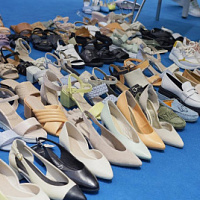
How to double the sales of a shoe store?
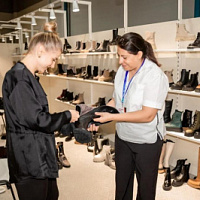
New direction of exhibitions in Alma-Ata: Euro Shoes @ Elite Line & CAF
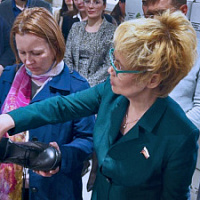
Round table with representatives of shoe factories of Dagestan with the support of the Ministry of Industry and Trade and NOBS
Popular
 Coach turned to Big Data analysis and won the interest of a young audience
American handbag brand Coach has planned the success of its Tabby model among a younger audience, Generation Z, by turning to big data analysis, abandoning traditional and analogue tools, such as human intuition or the ability of any executive to sense “which way the wind will blow,” writes B.O.F.
Coach turned to Big Data analysis and won the interest of a young audience
American handbag brand Coach has planned the success of its Tabby model among a younger audience, Generation Z, by turning to big data analysis, abandoning traditional and analogue tools, such as human intuition or the ability of any executive to sense “which way the wind will blow,” writes B.O.F.
 IDOL updates the concept
The IDOL brand, part of the Melon Fashion Group portfolio, opened the first flagship in an updated concept in the Aviapark shopping center in Moscow.
IDOL updates the concept
The IDOL brand, part of the Melon Fashion Group portfolio, opened the first flagship in an updated concept in the Aviapark shopping center in Moscow.
 Seven “sins” of the shoe business. How do owners harm the company with their own hands?
Why is Company X able to create a strong, profitable brand, but Company Y is struggling to make ends meet? Many people prefer to attribute success to luck, luck, or the support of strong patrons. And few people ask themselves the question: “What am I doing wrong?” Moreover, many entrepreneurs begin to harm their business from the first day of its opening. In this article, together with SR expert in the field of fashion business management and development, Maria Gerasimenko, we will look at the 7 main “sins” that business owners commit using specific examples.
Seven “sins” of the shoe business. How do owners harm the company with their own hands?
Why is Company X able to create a strong, profitable brand, but Company Y is struggling to make ends meet? Many people prefer to attribute success to luck, luck, or the support of strong patrons. And few people ask themselves the question: “What am I doing wrong?” Moreover, many entrepreneurs begin to harm their business from the first day of its opening. In this article, together with SR expert in the field of fashion business management and development, Maria Gerasimenko, we will look at the 7 main “sins” that business owners commit using specific examples.
 Louis Vuitton opens a new factory in Italy
Louis Vuitton has opened its second shoe factory in Italy. After opening the first one in Fiesso d'Artico in Veneto, the LVMH flagship brand has just opened a new production site dedicated to this category of footwear in the industrial zone of Civitano in the Marche region. There is also another brand production facility in Tuscany, where bags and leather accessories are produced, writes fr.fashionnetwork.com.
Louis Vuitton opens a new factory in Italy
Louis Vuitton has opened its second shoe factory in Italy. After opening the first one in Fiesso d'Artico in Veneto, the LVMH flagship brand has just opened a new production site dedicated to this category of footwear in the industrial zone of Civitano in the Marche region. There is also another brand production facility in Tuscany, where bags and leather accessories are produced, writes fr.fashionnetwork.com.
 The Euro Shoes@CAF exhibition will be held in Almaty
From March 11 to 13, the Euro Shoes@CAF (Central Asia Fashion) exhibition will be held in Almaty at the Atakent exhibition complex. The exhibition, which is the largest international event in the fashion industry in Central Asia, will present collections of clothing, shoes and accessories.
The Euro Shoes@CAF exhibition will be held in Almaty
From March 11 to 13, the Euro Shoes@CAF (Central Asia Fashion) exhibition will be held in Almaty at the Atakent exhibition complex. The exhibition, which is the largest international event in the fashion industry in Central Asia, will present collections of clothing, shoes and accessories.
 Euro Shoes will start operating on February 19 in Moscow!
The winter session of the international exhibition of footwear and accessories Euro Shoes premiere collection will be held in Moscow at the Expocenter from February 19 to 22. The organizers promise the presence of all the main participants at the exhibition, as well as new names from Europe, Asia and Russia.
Euro Shoes will start operating on February 19 in Moscow!
The winter session of the international exhibition of footwear and accessories Euro Shoes premiere collection will be held in Moscow at the Expocenter from February 19 to 22. The organizers promise the presence of all the main participants at the exhibition, as well as new names from Europe, Asia and Russia.
 American buyers couldn't buy Birkin bags and sued Hermès
French fashion house Hermès is facing a lawsuit in California from two customers who were unable to purchase exclusive Birkin bags. The fashion house is accused of unfair commercial practices.
American buyers couldn't buy Birkin bags and sued Hermès
French fashion house Hermès is facing a lawsuit in California from two customers who were unable to purchase exclusive Birkin bags. The fashion house is accused of unfair commercial practices.
 Why Rendez-Vous and Yandex Lavka released a “bread bag”
Shoe retailer Rendez-Vous announced the launch of a spring collaboration with Yandex Lavka and released a roll that resembles the shape of a woman’s handbag. This “Bread Bag” is presented in the Yandex.Lavka application at a price of 249 rubles. On the product packaging there is a promotional code for 1000 rubles, which can be spent in the Rendez-Vous network.
Why Rendez-Vous and Yandex Lavka released a “bread bag”
Shoe retailer Rendez-Vous announced the launch of a spring collaboration with Yandex Lavka and released a roll that resembles the shape of a woman’s handbag. This “Bread Bag” is presented in the Yandex.Lavka application at a price of 249 rubles. On the product packaging there is a promotional code for 1000 rubles, which can be spent in the Rendez-Vous network.
 Camper has released innovative sneakers - designers
Spanish brand Camper's new Roku sneaker features six interchangeable components to create up to 64 different looks and color combinations. Roku means "six" in Japanese.
Camper has released innovative sneakers - designers
Spanish brand Camper's new Roku sneaker features six interchangeable components to create up to 64 different looks and color combinations. Roku means "six" in Japanese.
 Christian Louboutin presented a collection in a cowboy style
At the Loubi Show in Paris, the French luxury brand Christian Louboutin presented its fall 2024 collection, following the trend - in the style of the Wild West. It included cowboy boots and rhinestone loafers.
Christian Louboutin presented a collection in a cowboy style
At the Loubi Show in Paris, the French luxury brand Christian Louboutin presented its fall 2024 collection, following the trend - in the style of the Wild West. It included cowboy boots and rhinestone loafers.
 Fashion Week takes place in Moscow
Fashion Week takes place in the Russian capital. Events include fashion shows, markets where you can purchase clothes, bags and accessories, and a B2B Showroom for fashion industry professionals.
Fashion Week takes place in Moscow
Fashion Week takes place in the Russian capital. Events include fashion shows, markets where you can purchase clothes, bags and accessories, and a B2B Showroom for fashion industry professionals.
 Turkish brand Vaneda on Euro Shoes
Street style, sport, outdoor, military – the main style directions of footwear of the company from Turkey
Turkish brand Vaneda on Euro Shoes
Street style, sport, outdoor, military – the main style directions of footwear of the company from Turkey
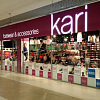 Kari accuses Zenden of unfair competition and is suing the FAS
The largest Russian shoe chain, Kari, appealed to the Moscow Arbitration Court to declare the actions of the Federal Antimonopoly Service (FAS) illegal, writes RBC.
Kari accuses Zenden of unfair competition and is suing the FAS
The largest Russian shoe chain, Kari, appealed to the Moscow Arbitration Court to declare the actions of the Federal Antimonopoly Service (FAS) illegal, writes RBC.
 Fashion trends Fall-Winter 2023/24 for commercial footwear purchases
Permanent contributor to Shoes Report. Elena Vinogradova, an expert in sales and purchases in the fashion business, prepared an overview of the trends for the autumn-winter 2023/24 season especially for us.
Fashion trends Fall-Winter 2023/24 for commercial footwear purchases
Permanent contributor to Shoes Report. Elena Vinogradova, an expert in sales and purchases in the fashion business, prepared an overview of the trends for the autumn-winter 2023/24 season especially for us.
 MSCHF and Crocs launch "Big Yellow Boots"
Creator of the Big Red Boots, Brooklyn brand MSCHF has teamed up with American plastic clog and sandal brand Crocs for another oversized shoe. The new Big Yellow Boots will go on sale on August 9th.
MSCHF and Crocs launch "Big Yellow Boots"
Creator of the Big Red Boots, Brooklyn brand MSCHF has teamed up with American plastic clog and sandal brand Crocs for another oversized shoe. The new Big Yellow Boots will go on sale on August 9th.
 Five rules of professional lighting for a shoe store - something that is relevant in any season
When developing a lighting concept for shoe retailers, it is important to take into account not only the history of the brand, the architectural content of the premises, the target audience of the stores, but also the seasonality of the goods. With the onset of the cold season, client preferences change: bright weightless shoes are replaced by more massive models in discreet dark colors. Despite significant differences in summer and winter collections, the overall philosophy of the brand, its recognition should remain unchanged at any time of the year. Tatyana Ryzhova, an SR lighting expert in fashion retail, has identified five basic rules for a competent lighting concept for a shoe store for readers of the magazine, which will help to present winter assortment to customers in a winning way.
Five rules of professional lighting for a shoe store - something that is relevant in any season
When developing a lighting concept for shoe retailers, it is important to take into account not only the history of the brand, the architectural content of the premises, the target audience of the stores, but also the seasonality of the goods. With the onset of the cold season, client preferences change: bright weightless shoes are replaced by more massive models in discreet dark colors. Despite significant differences in summer and winter collections, the overall philosophy of the brand, its recognition should remain unchanged at any time of the year. Tatyana Ryzhova, an SR lighting expert in fashion retail, has identified five basic rules for a competent lighting concept for a shoe store for readers of the magazine, which will help to present winter assortment to customers in a winning way.
 I doubt and object: how to find an approach to difficult clients?
How good and serene would be the work of a salesperson if the customers were calm, cheerful, always knew exactly what they wanted, and bought, bought, bought! It is a pity that this is possible only in dreams. Therefore, we will not dream, but we will act. Together with Maria Gerasimenko, a permanent author of SR, we understand the doubts and objections of buyers and build a strategy for working with them. Our expert pays special attention to the two main objections of buyers, on which 82% of sales are lost.
I doubt and object: how to find an approach to difficult clients?
How good and serene would be the work of a salesperson if the customers were calm, cheerful, always knew exactly what they wanted, and bought, bought, bought! It is a pity that this is possible only in dreams. Therefore, we will not dream, but we will act. Together with Maria Gerasimenko, a permanent author of SR, we understand the doubts and objections of buyers and build a strategy for working with them. Our expert pays special attention to the two main objections of buyers, on which 82% of sales are lost.
 EURO SHOES presents an updated section of the GLOBAL SHOES exhibition with collections of shoe and bag brands from Asian countries
EURO SHOES premiere collection is expanding. Along with the traditional pool of leading European footwear brands from Germany, Spain, Italy and Turkey, several dozen footwear and bag brands from the Middle Kingdom will be presented in the GLOBAL SHOES section at the Moscow Expocentre from August 29 to September 1.
EURO SHOES presents an updated section of the GLOBAL SHOES exhibition with collections of shoe and bag brands from Asian countries
EURO SHOES premiere collection is expanding. Along with the traditional pool of leading European footwear brands from Germany, Spain, Italy and Turkey, several dozen footwear and bag brands from the Middle Kingdom will be presented in the GLOBAL SHOES section at the Moscow Expocentre from August 29 to September 1.
 World Footwear Yearbook: Global footwear production reaches 23,9 billion pairs and is back to pre-pandemic levels
The Portuguese association of shoe manufacturers APICCAPS published the 13th edition of the international statistical bulletin World Footwear Yearbook for 2023, according to which in 2022 the production and export of shoes worldwide increased by 7,6% and 9%, respectively, and the world production of shoes reached 23,9 billion couples and returned to pre-pandemic levels.
World Footwear Yearbook: Global footwear production reaches 23,9 billion pairs and is back to pre-pandemic levels
The Portuguese association of shoe manufacturers APICCAPS published the 13th edition of the international statistical bulletin World Footwear Yearbook for 2023, according to which in 2022 the production and export of shoes worldwide increased by 7,6% and 9%, respectively, and the world production of shoes reached 23,9 billion couples and returned to pre-pandemic levels.
 Rostov footwear brand Novak presented a collection of sneakers and sneakers
In the spring-summer 2023 season, the Rostov-on-Don shoe brand Novak presented a cute collection of sneakers and sneakers for every day. The upper of the shoe is made of genuine leather, suede, nubuck, the sole is made of light EVA.
Rostov footwear brand Novak presented a collection of sneakers and sneakers
In the spring-summer 2023 season, the Rostov-on-Don shoe brand Novak presented a cute collection of sneakers and sneakers for every day. The upper of the shoe is made of genuine leather, suede, nubuck, the sole is made of light EVA.
 Jacquemus x Nike collaboration released
The second collaboration between Jacquemus and Nike, which has been talked about so much, is finally out. The appearance of the couple for many was a surprise. The model of Nike Air Force 1 sneakers, which was taken as the basis of the new collection, has undergone significant changes.
Jacquemus x Nike collaboration released
The second collaboration between Jacquemus and Nike, which has been talked about so much, is finally out. The appearance of the couple for many was a surprise. The model of Nike Air Force 1 sneakers, which was taken as the basis of the new collection, has undergone significant changes.
 Crocs releases a collaboration with Barbie
If Barbie ditched heels and wore crocs, they would be pink. It was this collection in pink that was released by the American brand of plastic clogs Crocs, for the release of the film "Barbie" in the United States.
Crocs releases a collaboration with Barbie
If Barbie ditched heels and wore crocs, they would be pink. It was this collection in pink that was released by the American brand of plastic clogs Crocs, for the release of the film "Barbie" in the United States.
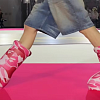 Japanese BAPE takes to the catwalk MSCHF Big Red Boots
The story of Brooklyn brand MSCHF's oversized rubber boots continues. The last time they made noise in the auditorium was at the Rick Owens menswear show. Now they have already appeared on the podium.
Japanese BAPE takes to the catwalk MSCHF Big Red Boots
The story of Brooklyn brand MSCHF's oversized rubber boots continues. The last time they made noise in the auditorium was at the Rick Owens menswear show. Now they have already appeared on the podium.
 Shoe educational program: what shoe soles are made of
“What is the difference between TEP and EVA? What does tunit promise me? Is PVC glue? What is the sole of these shoes made of? ”- the modern buyer wants to know everything. In order not to smash his face in front of him and be able to explain whether such a sole suits him in soles, carefully read this article. In it, process engineer Igor Okorokov tells what materials the soles of shoes are made of and what makes each of them so good.
Shoe educational program: what shoe soles are made of
“What is the difference between TEP and EVA? What does tunit promise me? Is PVC glue? What is the sole of these shoes made of? ”- the modern buyer wants to know everything. In order not to smash his face in front of him and be able to explain whether such a sole suits him in soles, carefully read this article. In it, process engineer Igor Okorokov tells what materials the soles of shoes are made of and what makes each of them so good.
 How to set prices that will earn
Some businessmen still confuse the concept of margin with the concept of trade margins and set prices for their goods, guided solely by the example of competitors. No wonder they go broke! Analyst at the Academy of Retail Technologies Maxim Gorshkov gives several tips and formulas with which you can set not only ruinous, but also profitable prices.
How to set prices that will earn
Some businessmen still confuse the concept of margin with the concept of trade margins and set prices for their goods, guided solely by the example of competitors. No wonder they go broke! Analyst at the Academy of Retail Technologies Maxim Gorshkov gives several tips and formulas with which you can set not only ruinous, but also profitable prices.
 Sales of shoes and accessories: effective techniques for business rhetoric
Which speech modules are effective in communicating with potential and current customers of shoe stores, and which are not, Anna Bocharova, a business consultant, knows.
Sales of shoes and accessories: effective techniques for business rhetoric
Which speech modules are effective in communicating with potential and current customers of shoe stores, and which are not, Anna Bocharova, a business consultant, knows.
 We form the salary of sellers: expert advice
“How do you charge your consultants for personal or general sales?” Is one of the most popular questions causing a lot of controversy and gossip on the online forums of retail business owners. Indeed, how to properly form the earnings of sellers? But what about bonuses, where to get a sales plan from, do employees allow them to buy goods at discounted stores? In search of truth, the Shoes Report turned to a dozen shoe retailers, but no company wanted to disclose its motivation system - the process of its development was too complicated and individual. Then we asked four business consultants, and finally became convinced that the topic of seller motivation is very complex, because even our experts could not come to a common opinion.
We form the salary of sellers: expert advice
“How do you charge your consultants for personal or general sales?” Is one of the most popular questions causing a lot of controversy and gossip on the online forums of retail business owners. Indeed, how to properly form the earnings of sellers? But what about bonuses, where to get a sales plan from, do employees allow them to buy goods at discounted stores? In search of truth, the Shoes Report turned to a dozen shoe retailers, but no company wanted to disclose its motivation system - the process of its development was too complicated and individual. Then we asked four business consultants, and finally became convinced that the topic of seller motivation is very complex, because even our experts could not come to a common opinion.
 Technology Selling Issues
There is nothing worse than meeting the buyer with the words “Hello, can I help you with something?”, Because the seller works in the store just to help. Criticizing this well-established pattern of communication with the buyer, Andrei Chirkarev, business coach for effective sales and the founder of the New Economy project, shares the technology of truly selling issues with readers of Shoes Report.
Technology Selling Issues
There is nothing worse than meeting the buyer with the words “Hello, can I help you with something?”, Because the seller works in the store just to help. Criticizing this well-established pattern of communication with the buyer, Andrei Chirkarev, business coach for effective sales and the founder of the New Economy project, shares the technology of truly selling issues with readers of Shoes Report.
 The whole truth about Bayer. Who is he and how to become one?
Bayer is no longer a new, but still a popular and sought-after profession. It’s fashionable to be a buyer. Buyers are at the origins of the emergence and development of trends. If the designer offers his vision of fashion in the season, then the buyer selects the most interesting commercial ideas. It is on buyers that the policy of sales of stores and what, in the end, the buyer will wear depends on. This profession is surrounded by a magical fleur, often associated with a lack of understanding of what exactly is the work of a buyer.
The whole truth about Bayer. Who is he and how to become one?
Bayer is no longer a new, but still a popular and sought-after profession. It’s fashionable to be a buyer. Buyers are at the origins of the emergence and development of trends. If the designer offers his vision of fashion in the season, then the buyer selects the most interesting commercial ideas. It is on buyers that the policy of sales of stores and what, in the end, the buyer will wear depends on. This profession is surrounded by a magical fleur, often associated with a lack of understanding of what exactly is the work of a buyer.
 Fur, and not only: types of lining
In the production of winter footwear, various materials are used that are designed to retain heat and meet the requirements of consumers: natural sheepleather, artificial fur, artificial fur from natural wool and others. All types of lining fur have their own advantages and disadvantages. Let's consider the properties of each of them.
Fur, and not only: types of lining
In the production of winter footwear, various materials are used that are designed to retain heat and meet the requirements of consumers: natural sheepleather, artificial fur, artificial fur from natural wool and others. All types of lining fur have their own advantages and disadvantages. Let's consider the properties of each of them.
 Retail Arithmetic
Before you begin to solve specific problems, you need to find out how accurately all the leaders of your company understand the basic terminology of retail.
Retail Arithmetic
Before you begin to solve specific problems, you need to find out how accurately all the leaders of your company understand the basic terminology of retail.
 How to fire a worker without tears, scandal and trial
Sooner or later, any manager is faced with the need to part with an employee. Properly and on time the dismissal procedure will save the company money, and the boss himself - nerves and time. But why sometimes, knowing that a break in relations is inevitable, we put off the decision for months?
How to fire a worker without tears, scandal and trial
Sooner or later, any manager is faced with the need to part with an employee. Properly and on time the dismissal procedure will save the company money, and the boss himself - nerves and time. But why sometimes, knowing that a break in relations is inevitable, we put off the decision for months?


